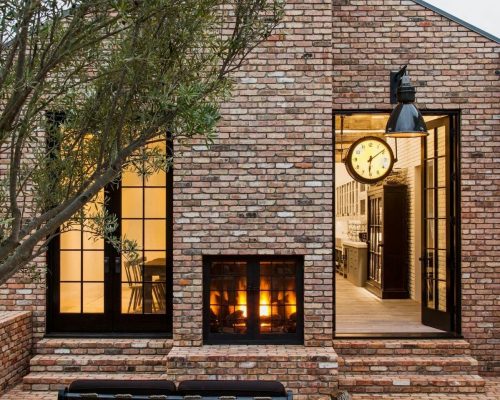BRICK
‘Architecture starts when you carefully put two bricks together. There it begins’.
Ludwig Mies van der Rohe
Bricks are one of the oldest building materials known to man. Bricks are not only beautiful, but also environmentally friendly.
For this reason, they have become a perfect choice for those wishing to build in an environmentally sensitive way. Here are five reasons as to why bricks make good eco-sense.
Reasons to choose bricks in our living environment:
1.bricks are made of natural materials
Brick is made of soil– one of the most abundant, natural materials on earth and then fired by a kiln at up to very high degrees. So, bricks are available materials for people.
2.bricks are great insulators for temperature
Brick has “thermal mass” properties. the meaning of thermal mass is the ability of a heavy, dense material to store heat and then slowly release it.
These natural insulating factors ensure that they trap heat on cool days, and keep houses cool during the warmer months. because of this, bricks are suitable in both extremely hot climates and in freezing temperatures.
3.Bricks are recyclable
Many home builders use the remaining bricks in other usages, such as paths and outdoor spaces. So, bricks can be used over and over again. In some cases, they even sell the broken parts of the bricks to the builders and use them for reconstruction in places like villages. They can even be used on highways or to produce new products.
4.Bricks don’t need any chemicals to maintain their beauty
bricks don’t need to be painted, waterproofed or treated with chemicals to make them weather-proof. So, Bricks are largely maintenance-free.
All they need is the occasional clean. they when using in a building they might just need the occasional re-mortaring to look as good as the first day they are built. They are also pest-resistant, which means don’t need chemical treatments to protect.
5.Bricks create the least amount of waste
Bricks are stable products and, so handling them is safe for people and special equipment is not necessary. Even if they do end up in landfill, they won’t hurt the soil.
BRICK
‘Architecture starts when you carefully put two bricks together. There it begins’.
Ludwig Mies van der Rohe
Bricks are one of the oldest building materials known to man. Bricks are not only beautiful, but also environmentally friendly.
For this reason, they have become a perfect choice for those wishing to build in an environmentally sensitive way. Here are five reasons as to why bricks make good eco-sense.
Reasons to choose bricks in our living environment:
1.bricks are made of natural materials
Brick is made of soil– one of the most abundant, natural materials on earth and then fired by a kiln at up to very high degrees. So, bricks are available materials for people.
2.bricks are great insulators for temperature
Brick has “thermal mass” properties. the meaning of thermal mass is the ability of a heavy, dense material to store heat and then slowly release it.
These natural insulating factors ensure that they trap heat on cool days, and keep houses cool during the warmer months. because of this, bricks are suitable in both extremely hot climates and in freezing temperatures.
3.Bricks are recyclable
Many home builders use the remaining bricks in other usages, such as paths and outdoor spaces. So, bricks can be used over and over again. In some cases, they even sell the broken parts of the bricks to the builders and use them for reconstruction in places like villages. They can even be used on highways or to produce new products.
4.Bricks don’t need any chemicals to maintain their beauty
bricks don’t need to be painted, waterproofed or treated with chemicals to make them weather-proof. So, Bricks are largely maintenance-free.
All they need is the occasional clean. they when using in a building they might just need the occasional re-mortaring to look as good as the first day they are built. They are also pest-resistant, which means don’t need chemical treatments to protect.
5.Bricks create the least amount of waste
Bricks are stable products and, so handling them is safe for people and special equipment is not necessary. Even if they do end up in landfill, they won’t hurt the soil.







